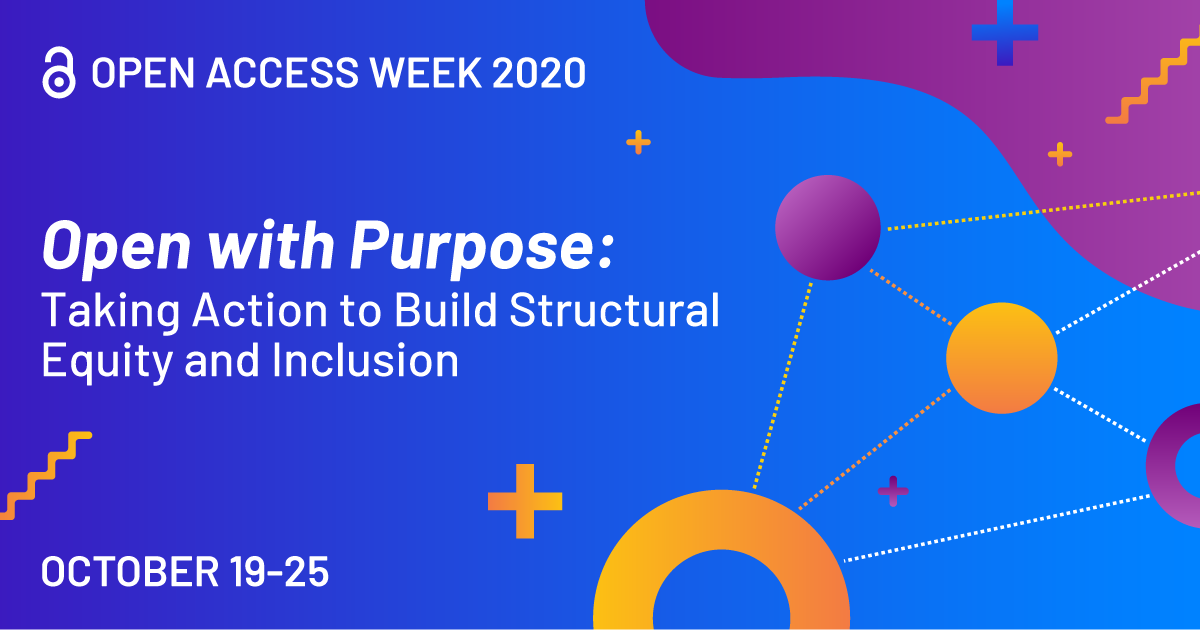The theme of International Open Access Week this year is ‘Open with Purpose: Taking Action to Build Structural Equity and Inclusion’. The theme is a recognition that while openness can be a powerful tool for building more equitable systems of sharing knowledge, structural racism, discrimination, and exclusion are present and persistent in places where openness is a core value. As researchers and research support staff, we must examine who these systems and spaces are designed for, whose interests are prioritised, and who is missing or excluded by the infrastructure and community standards for openness that we use.
FAIR Data
Many of the major UK research funders support the principle that the research data or research materials underpinning published research outputs should be made available open access wherever possible, by the publication date of the research outputs, and following the FAIR Guiding Principles (2016). These four guiding principles – Findability, Accessibility, Interoperability, and Reusability – are designed to ensure the transparency, reproducibility, and reusability of publicly-funded research data, and to make publicly-funded research data open for the benefit of all.
However, as the Global Indigenous Data Alliance have identified, the FAIR principles focus on characteristics of data that increase sharing – such as the use of non-proprietary formats – without accounting for power differentials and historical contexts. The emphasis on open data sharing alone creates a particular tension for Indigenous Peoples who are asserting greater control over the use of Indigenous data and Indigenous Knowledge for collective benefit.
Indigenous data, which include data collected by researchers, institutions, and governments about Indigenous Peoples and their territories, have significant implications for decision-making (from which Indigenous Peoples are often excluded), resource allocation, and Indigenous Peoples’ ability to exercise their individual and collective rights to self-determination.
CARE data
The Global Indigenous Data Alliance therefore drafted the CARE Principles for Indigenous Data Governance to complement the FAIR principles’ focus on purpose with a focus on people. The CARE Principles recognise that access to good quality data is a key driver for the implementation of the FAIR principles, but add that access to data must be ethical and socially responsible. The CARE principles encourage both researchers who work with Indigenous Peoples and open data movements to consider Collective benefit and equitable outcomes for Indigenous Peoples, to recognise Indigenous Peoples’ Authority to Control, to recognise the Responsibility to be accountable for how data is used, and to consider Ethics, that is, to centre Indigenous People’s rights and wellbeing at all stages of the data lifecycle from creation to publication.
The Guidelines for Data Sharing Respecting Indigenous Data Sovereignty outline obligations for funders, governments, researchers, and data stewards in the collection, ownership, application, sharing, and dissemination of Indigenous data to avoid distrust and harm: to #BeFAIRandCARE
As we work together to make openness the norm in scholarship and research, we must commit to building equity and inclusion into the structures and community standards that support these endeavours.
Further reading
If you are interested in reading more about embedding good data practices that are mindful of intersecting oppressions and power differentials, you can download the free ebook Indigenous Data Sovereignty (Australian National University Press, 2016), edited by Tahu Kukutai and John Taylor here.
You can also read Good Data (Institute of Network Cultures, 2019), edited by Angela Daly, S. Kate Devitt and Monique Mann, online for free, here; and you can read Data Feminism (MIT Press, 2020), edited by Catherine D’Ignazio and Lauren F. Klein, online for free here.
Connect with the Global Indigenous Data Alliance on twitter and #BeFAIRandCARE
- 2023 Culture, Employment and Development in Academic Research Survey (CEDARS) is now live! - April 11, 2023
- Articles, books, and data, and where to publish them - March 20, 2023
- NEW University Research Data Management Policy - January 18, 2023
